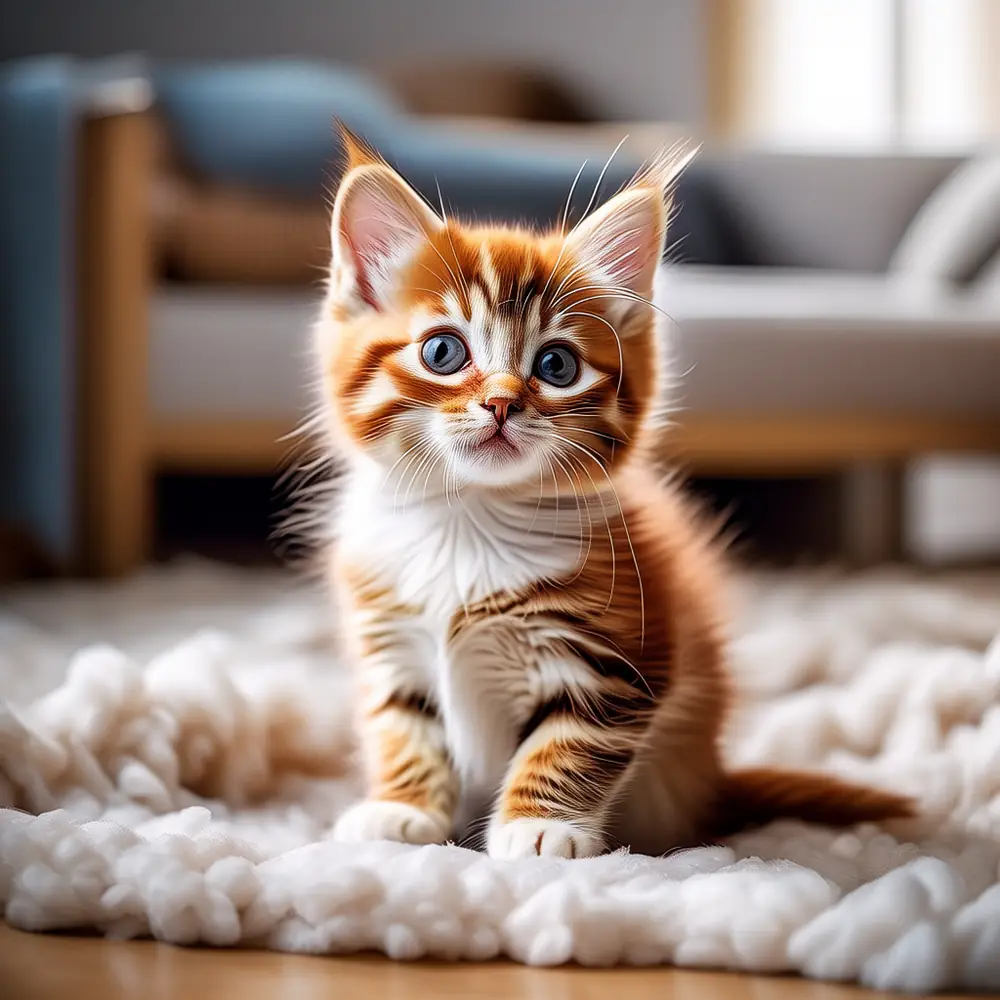Happy Cat, Happy Home: Nurturing Your Feline Friend's Mental Health
Just like humans, cats can experience a range of emotions and mental states. A happy and mentally healthy cat is not only more enjoyable to be around but also less likely to develop behavioral issues or physical health problems. Ensuring your feline friend’s mental well-being is an essential part of being a responsible and loving pet owner. Let’s dive into some practical tips to keep your cat’s mind as sharp and content as possible.
1. Create a Safe and Enriched Environment: Cats are naturally curious and need stimulation to stay mentally engaged. Provide a variety of toys that cater to different play styles, such as puzzle feeders, interactive toys, and scratching posts. Setting up perches by windows or creating a "cat tree" with multiple levels can also give your cat a sense of control and a place to observe their surroundings. For example, a simple cardboard box can become a fun hiding spot or a cozy den for your cat to retreat to when they need some quiet time.
2. Maintain a Consistent Routine: Cats thrive on predictability. Establishing a consistent daily routine for feeding, playtime, and rest can help reduce stress and anxiety. For instance, if you feed your cat at the same time every day, they will feel more secure and less likely to exhibit anxious behaviors. Similarly, setting aside a specific time for play and interaction can help them look forward to these moments and build a stronger bond with you.
3. Social Interaction and Attention: While cats are often seen as independent, they still need social interaction to stay mentally healthy. Spend quality time with your cat each day, engaging in activities they enjoy, such as playing with a feather wand or simply sitting and petting them. If you have a multi-cat household, ensure there are enough resources (like food bowls and litter boxes) to prevent competition and stress. For example, having one more litter box than the number of cats in your home can help avoid territorial disputes.
4. Monitor for Signs of Stress: Keep an eye out for signs that your cat may be experiencing stress or anxiety, such as excessive grooming, changes in appetite, or hiding more than usual. If you notice any of these signs, it’s important to address the underlying cause. Sometimes, a change in the environment, such as a new piece of furniture or a loud noise, can trigger stress. Gradually introducing changes and providing a safe space can help your cat adjust more comfortably.
- Provide a variety of toys and play areas to keep your cat mentally stimulated.
- Establish a consistent daily routine for feeding, playtime, and rest.
- Spend quality time with your cat each day, engaging in activities they enjoy.
- Monitor for signs of stress and address any changes in behavior promptly.
- Ensure a safe and predictable environment, especially during times of change.
A Mini Caution:
One common mistake is overstimulating your cat. While it’s important to provide enrichment, too much activity or too many new things at once can be overwhelming. Introduce new toys, environments, or routines gradually to allow your cat to adapt comfortably.
By following these tips, you can help ensure your cat’s mental health remains strong, leading to a happier, healthier, and more harmonious life for both of you. Remember, a little attention and care go a long way in keeping your feline friend’s mind and spirit in top shape!
